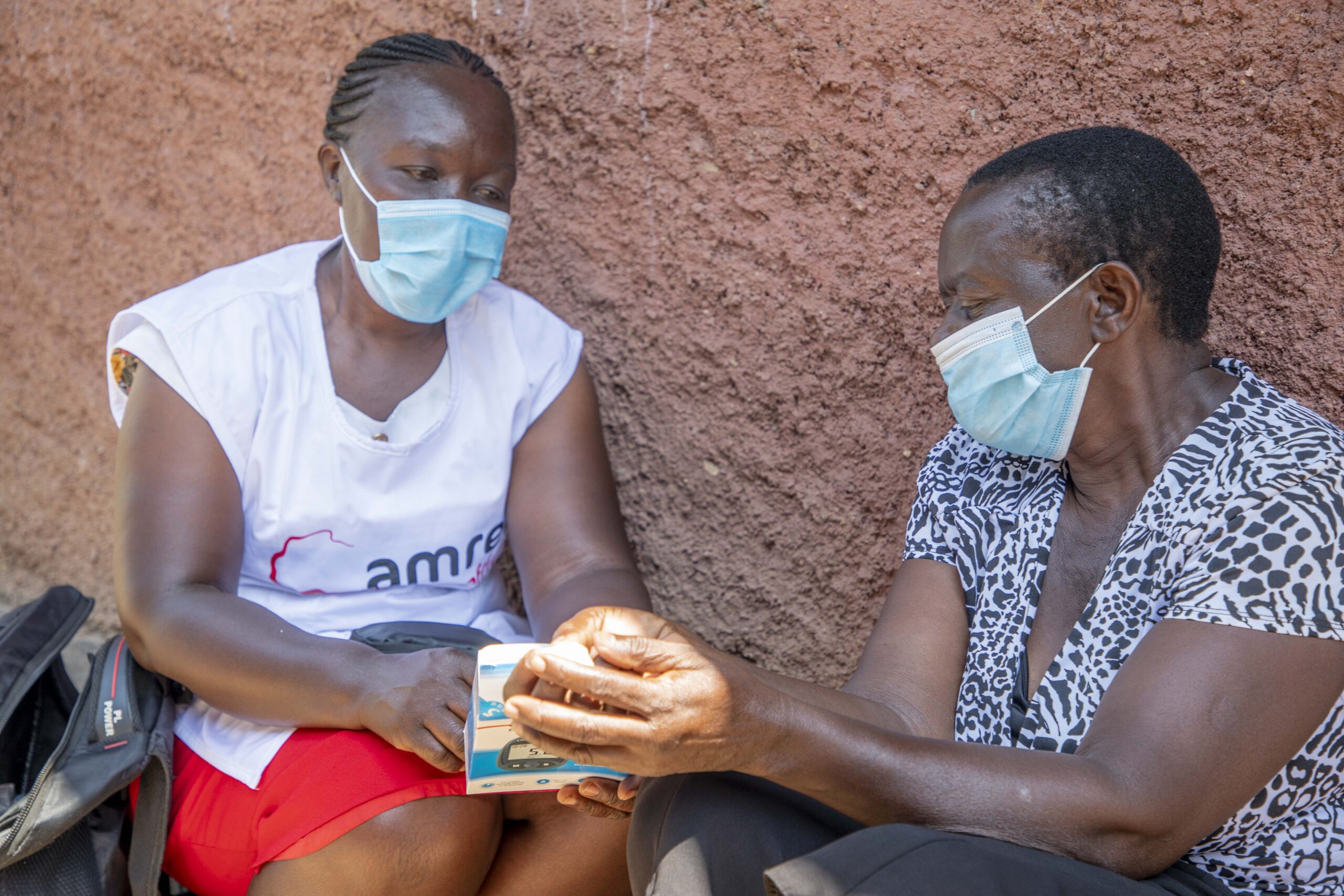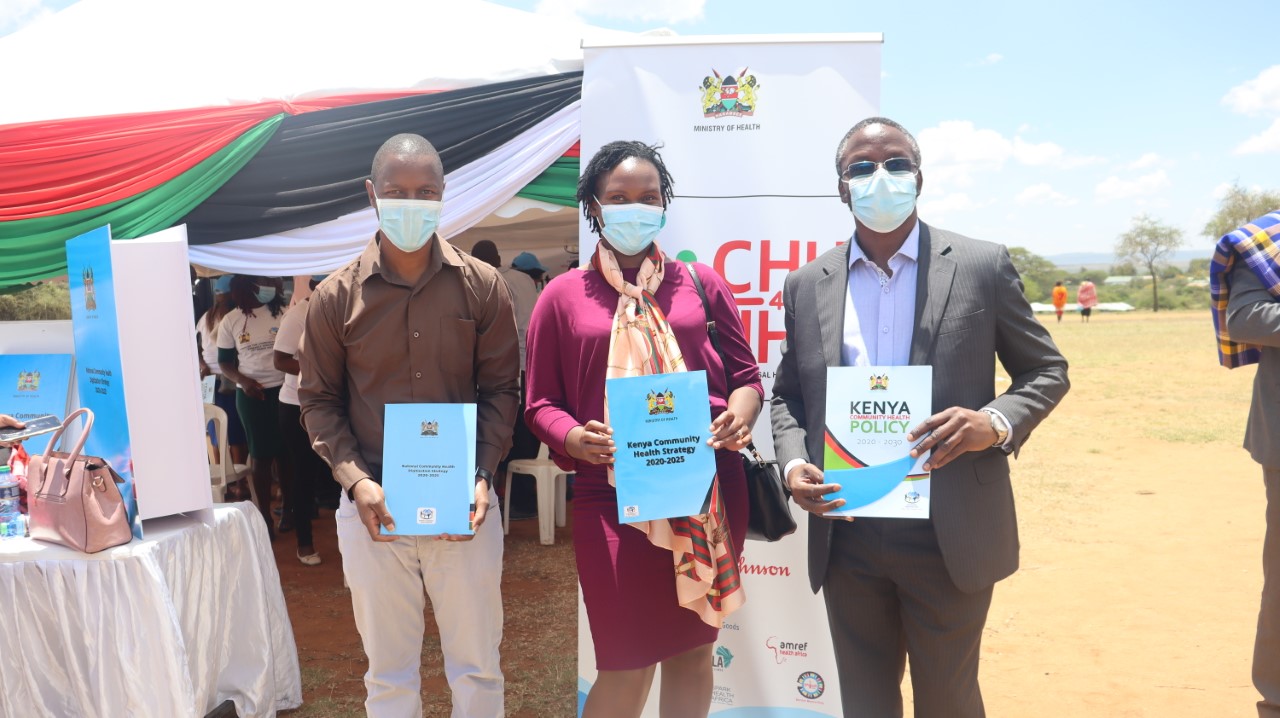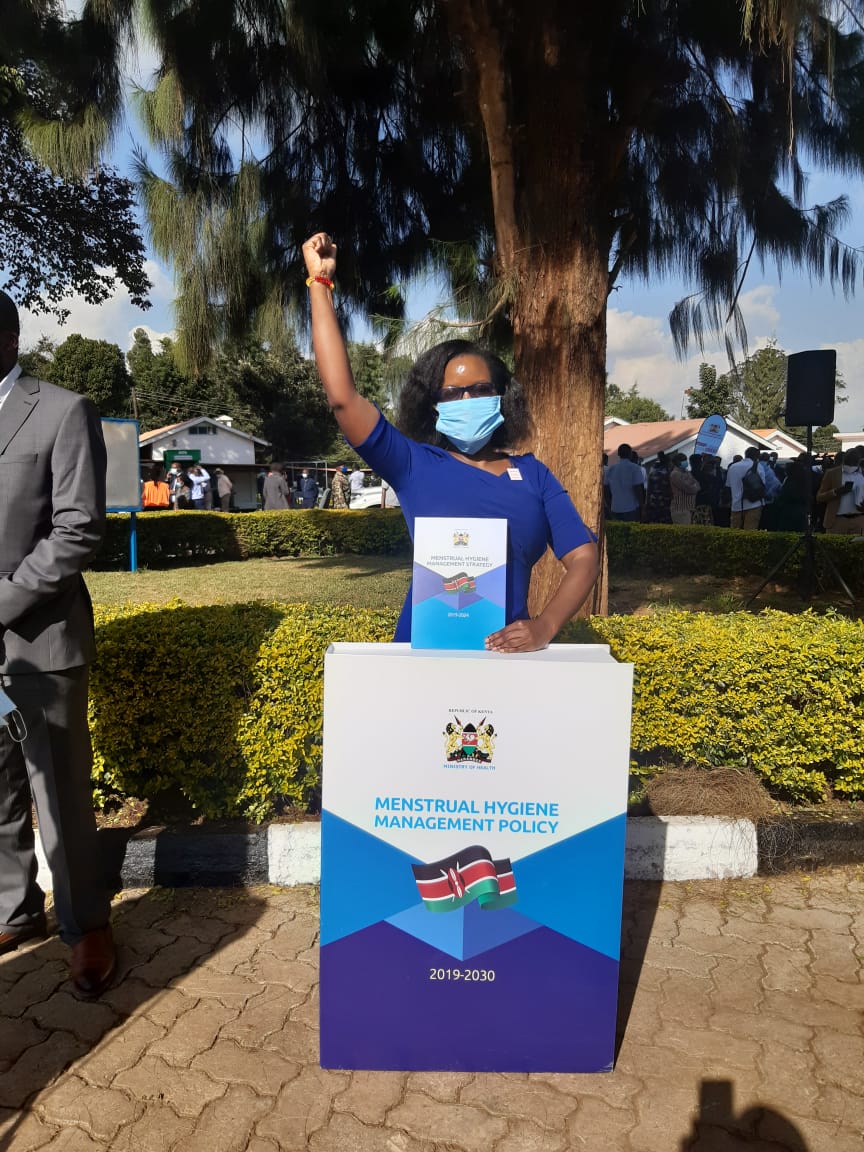Community Health Volunteers Champion the Uptake of Improved Sanitation Facilities
Wednesday, 30 January, 2019

Thirty-seven year old Mary Kakita is among 435 Community Heath Volunteers (CHVs) trained and supported by the Amref Health Africa FINISH-INK project to promote and market sanitation facility models and link interested clients to financiers, local sanitation suppliers and artisans.
Mary is also a kindergarten teacher and lives with her husband and five children in Kaalan Village, Nambale Constituency, Busia County. The county was declared open defecation free by the Government of Kenya in 2015.
Mary takes pride in her duties as a CHV and is in charge of 53 households. Her main task is to share sanitation promotional messages to improve the health of fellow community members in their households and mitigate the spread of disease.
“My role as a CHV is to raise awareness on the importance of having a latrine and also ensure they construct facilities using the FINISH latrine model that is long lasting and uses locally available materials.”
She knows very well that as a result of no access to toilets and hand-washing stations, water and food become easily contaminated, contributing to community-wide illnesses and increased mortality rates.
“Every time I visit households, I share the knowledge I received during my trainings with Amref. It has empowered me to help my people,” she says.
Mary’s motivation comes from seeing the health of people in her community drastically improve following the adoption of toilet use and therefore no more open defecation. She understands the challenges and needs in her village and she is aware that with improved sanitation and toilet facilities, the health status of many families will improve.
“Before many households had latrines, there were many cases of diarrheal diseases. CHVs had a lot of work to enforce behaviour change especially in hand-washing and owning a toilet. Before the project, people defecated in the open and there were lots of diseases. The situation was bad; water was contaminated,” says Mary.
Every day during her door-to-door visits, Mary passes health messages to women groups, at barazas, schools and churches, emphasising the need to have toilets and explaining the importance of adopting FINISH latrines.
In her community, most people construct latrines that are shallow and not strong and often collapse because of the loose soil in this region. The modern latrines promoted by the FINISH INK project have a concrete slab base and are constructed using makiga bricks – locally-produced interlocking bricks that do not require cement when building. Not only are they strong, but the use of locally available materials significantly reduces the cost of construction.
Mary still faces some challenges in her work as most people are unemployed with low living standards.
“You have to really convince them. Sometimes it is really difficult to ask someone to build a toilet yet they do not have money to buy food and other necessities. I tell my community of the benefits of investing in a latrine and the negative effects of not having one,” she says.
Mary links them up with financial institutions such as banks, women groups and community-based organisations where they can take loans to build toilets. The FINISH INK model promotes improved sanitation by making sanitation facilities affordable to poor households through public-private partnerships with financial institutions that offer affordable loans.
Mary also stresses the effectiveness of hand-washing and good hygiene to reduce incidents of diarrheal disease in her community. “I ensure that each household has a leaky tin which is a locally-sourced hand-washing facility placed outside the toilet, and teach the importance of hand -washing after visiting the toilet.”
Mary’s dream is to see every household have a toilet.
“Training for this course in sanitation makes me feel very useful, and I am happy to contribute as a volunteer,” she concludes.
The efforts of volunteers like Mary and others working with Amref Health Africa in Kenya’s Financial Inclusion Improves Sanitation and Health in Kenya (FINISH INK) project funded by the Dutch Government through the Netherlands Enterprise Agency (RVO) are beginning to bear fruit. Analysis of clinical data shows a 12% reduction of diarrheal diseases among children under the age of five. The project has also co-invested with the County and national Government through Constituency Development Fund (CDF) of over US$250,000 to improve sanitataion facilities across the County.
Through community mobilisation by CHVs like Mary, the project has so far reached 148,600 households with sanitation messages, 7289 houses have access the micro-loans to improve sanitation, 17,412 basic latrines have been constructed and improved 6,731 sanitation facilities while enhancing the livelihoods of 518 entrepreneurs (both youth and women groups) in Busia County.
Story by Maureen Cherongis
Amref Health Africa teams up with African communities to create lasting health change.




